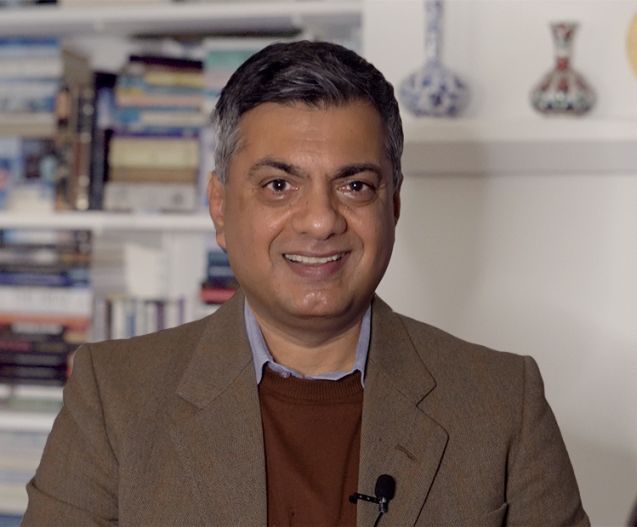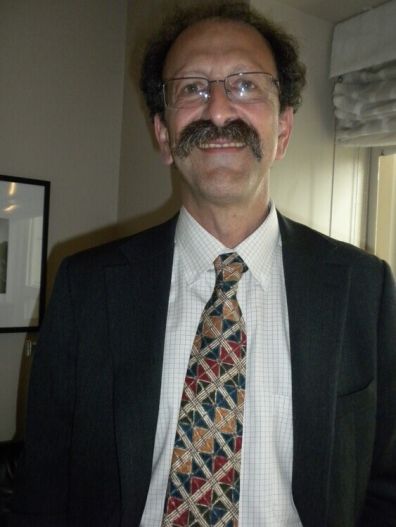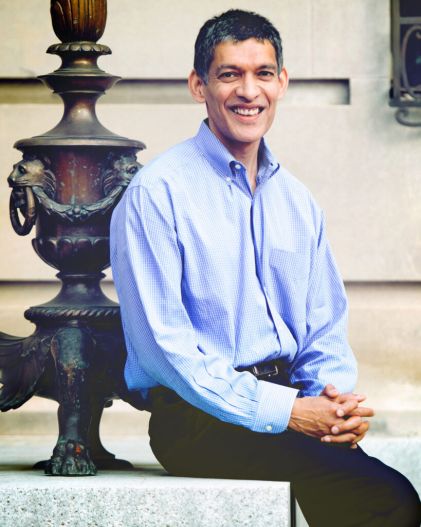South Asia Program
International Fair 2022

August 31, 2022
11:00 am
Uris Hall, Terrace
The annual International Fair showcases Cornell's global opportunities for undergraduate and graduate students. Explore the fair and find out about international majors and minors, language study, study abroad, funding opportunities, global internships, and more.
The International Fair is sponsored by the Mario Einaudi Center for International Studies, the Office of Global Learning (both part of Global Cornell), and Cornell's Language Resource Center.
Additional Information
Program
Einaudi Center for International Studies
Reppy Institute for Peace and Conflict Studies
East Asia Program
Southeast Asia Program
Latin American and Caribbean Studies
Institute for African Development
Institute for European Studies
South Asia Program
U.S. and Taiwan Hold First Round of Trade Talks in New Bid to Counter China’s Economic Influence

Allen Carlson, CMSP/EAP/SAP
Allen Carlson, director of Cornell University’s China and Asia-Pacific Studies program, comments on U.S.-China relations.
Additional Information
Faisal Devji, Islam, Capitalism, and the Loss of Theology

July 6, 2022
3:30 pm
Goldwin Smith Hall, G76
Stemming from the rediscovery of Carl Schmitt, the recent work on political theology emphasizes the irreducibility of the theological in modern politics. Dating from the 1980s, a decade bookended by the Iranian Revolution and the Rushdie Affair, this work has attended to the persistence of religion and the crisis of secularism. As important, however, was the collapse of modernization theory with the disintegration of the Third World and its anti-colonial project.
Central to though rarely acknowledged by this research, Islam has come to represent the chief example of theology’s irreducibility. Yet Schmitt’s statement, about all political concepts being the secularization of theological ones, can also be read as a description of the latter’s evanescence in their very expansion. Rather than representing its persistence, contemporary Islam is defined by the loss of the theological as it is reproduced in capitalist ways.
Islam serves as both a repository and displacement of the theological for other religions. Yet its own spectacles of outrage and violence, over alleged insults to Muhammad, rehearse the absence of the theological. Emerging out of colonial capitalism, such controversies over representations of Muhammad have also secularized blasphemy and promoted the rise of offences against identity in Euro-American societies.
Additional Information
Program
Einaudi Center for International Studies
South Asia Program
David Shulman, The Silent Witness in the Mind: Doing the Right Thing in South India and Palestine

July 12, 2022
3:30 pm
Goldwin Smith Hall, G76
Additional Information
Program
Einaudi Center for International Studies
South Asia Program
LRC Happy Hour

August 11, 2022
12:00 pm
Join us on Zoom throughout the summer for LRC Happy Hour. Every second Thursday of the month at noon on Zoom. We'd love to hear how it's going! All of it.
Bring your (language instruction) stories whether they be good, bad, amazing, or unusual. It takes all kinds of stories to make Happy Hour great!Bring your own coffee, tea, or mystery beverage.While we can't serve lunch, the LRC will provide fun, jokes, and laughs free of charge.Also, we just want to see your smiling faces, because we miss you.
Zoom link posted on our website: https://lrc.cornell.edu/live-help-sessions
Additional Information
Program
Southeast Asia Program
Latin American and Caribbean Studies
South Asia Program
Confused by Crypto?

SAP Faculty Member Has the Answers
Economist and South Asia Program core faculty Eswar Prasad weighs in on the end of cash, the rise of electronic payments, and Bitcoin.
Additional Information
Roderick Wijunamai

Graduate Student
Roderick Wijunamai is a PhD student in the Department of Anthropology. His PhD research focuses on forms of plantation, and its impact on Indigenous people in the Indo-Myanmar borderlands.
Degree Pursued: PhD
Anticipated Degree Year: 2027
Committee Chair/Advisor: Sarah Besky
Discipline: Anthropology
Primary Language: Konyak, Nagamese
Research Countries: Myanmar
Additional Information
Asian Studies Minors

The Department of Asian Studies in the College of Arts and Sciences offers three area studies minors—all linked with corresponding Einaudi area studies programs—along with a minor in Sanskrit studies.
Students from any college or discipline may apply. All Asian studies minors are encouraged to participate in the activities of the Einaudi Center's East Asia Program, South Asia Program, and Southeast Asia Program.
Find detailed information and the application process for each minor:
- Minor in East Asian Studies
- Minor in South Asian Studies
- Minor in Southeast Asian Studies
- Minor in Sanskrit Studies
Learn more about the Einaudi Center's minors for undergraduate and graduate students.
Additional Information
Congratulations, Faculty and Students

Einaudi Awards Fund Global Research and Activities
Einaudi awarded seed grants, student travel grants, and internships totaling $355,000. Congratulations to this year's recipients!
Additional Information
Fearful of Getting Cut Off, China Pushes for Self-Reliance

Eswar Prasad, SAP
“One lesson that China is probably taking from the fallout is it remains vulnerable to financial, economic and technological sanctions,” says Eswar Prasad, professor of international trade policy and economics.
